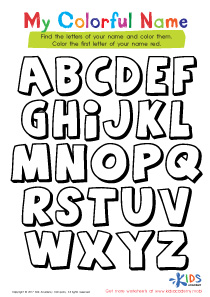Spelling practice Grade 3 Phonics Worksheets
6 filtered results
-
From - To
Enhance your third grader's spelling skills with our engaging phonics worksheets! Our Spelling Practice Grade 3 resources are designed to reinforce essential phonetic concepts, helping students master word patterns and improve their vocabulary. Each worksheet offers diverse activities, including fill-in-the-blanks, matching exercises, and phonetic spellings, tailored to cater to various learning styles. Kids will enjoy practicing spelling through fun and interactive exercises that promote retention and understanding. Perfect for both classroom use and at-home learning, these worksheets empower young learners to become confident spellers. Download our worksheets today and make learning spellings an enjoyable experience for your child!
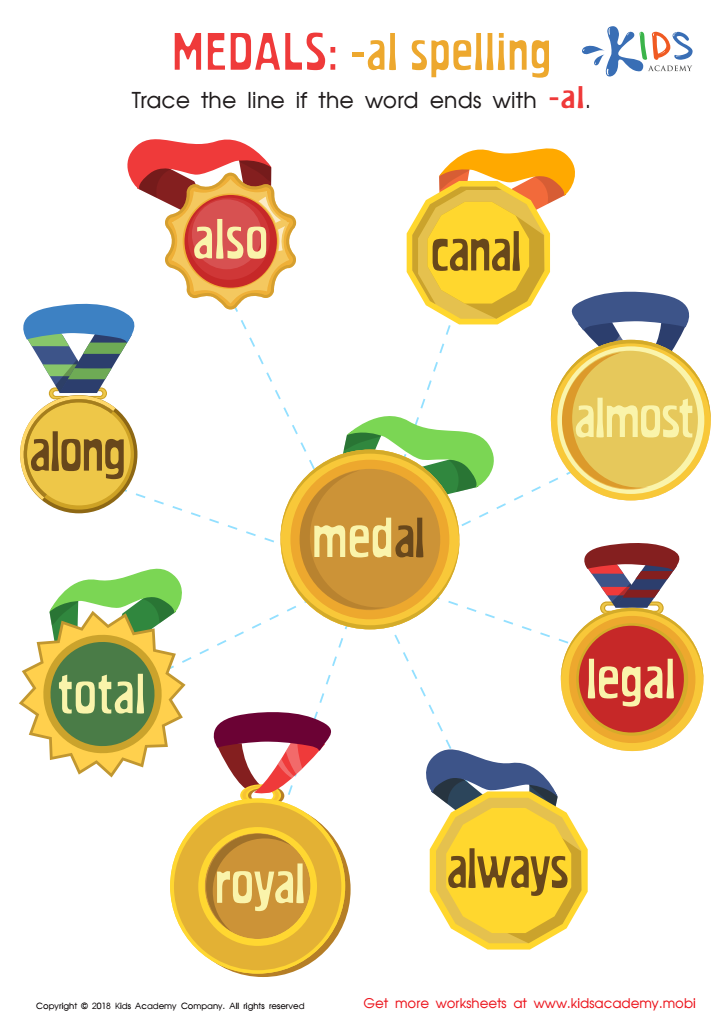

Medals: Al Spelling Worksheet
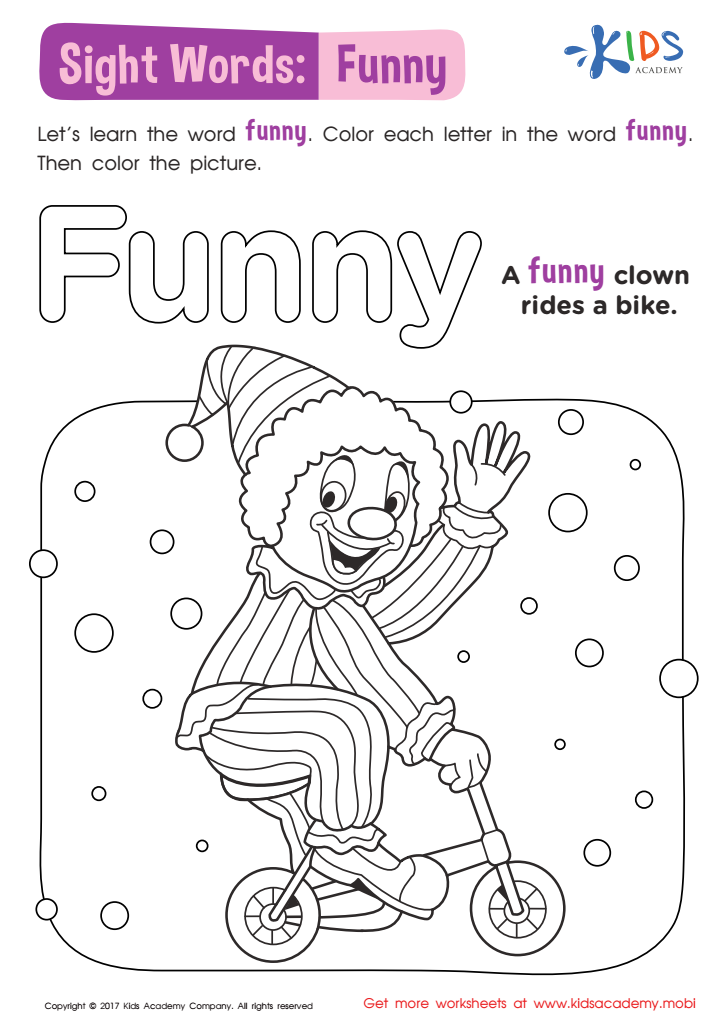

Funny Worksheet Sight Words Worksheet
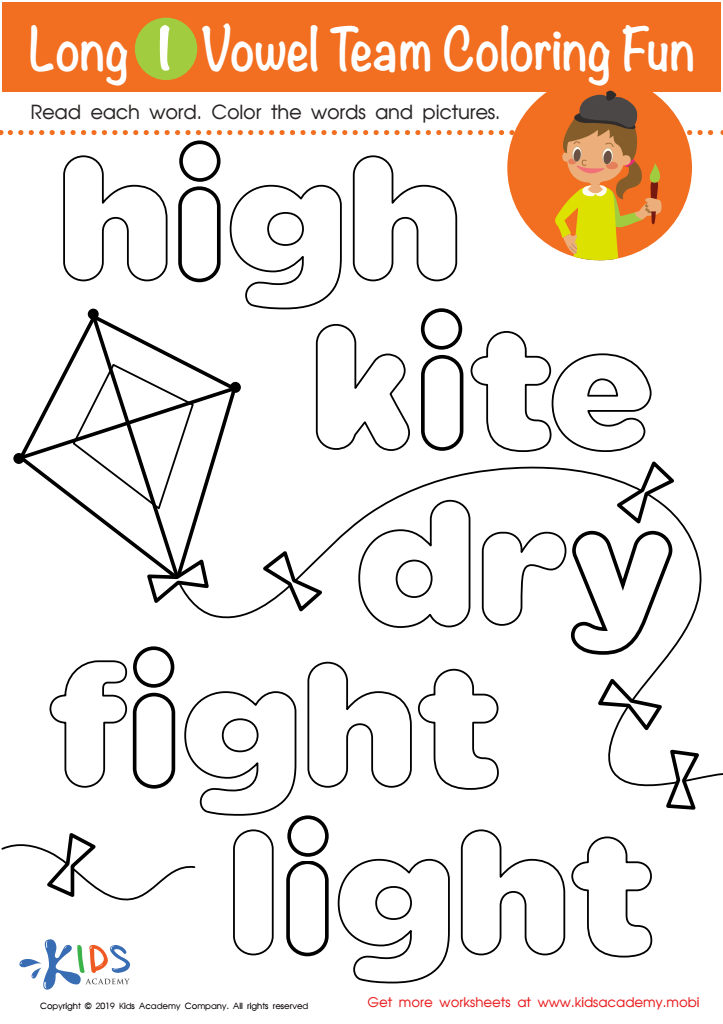

Long I Vowel Team Coloring Worksheet
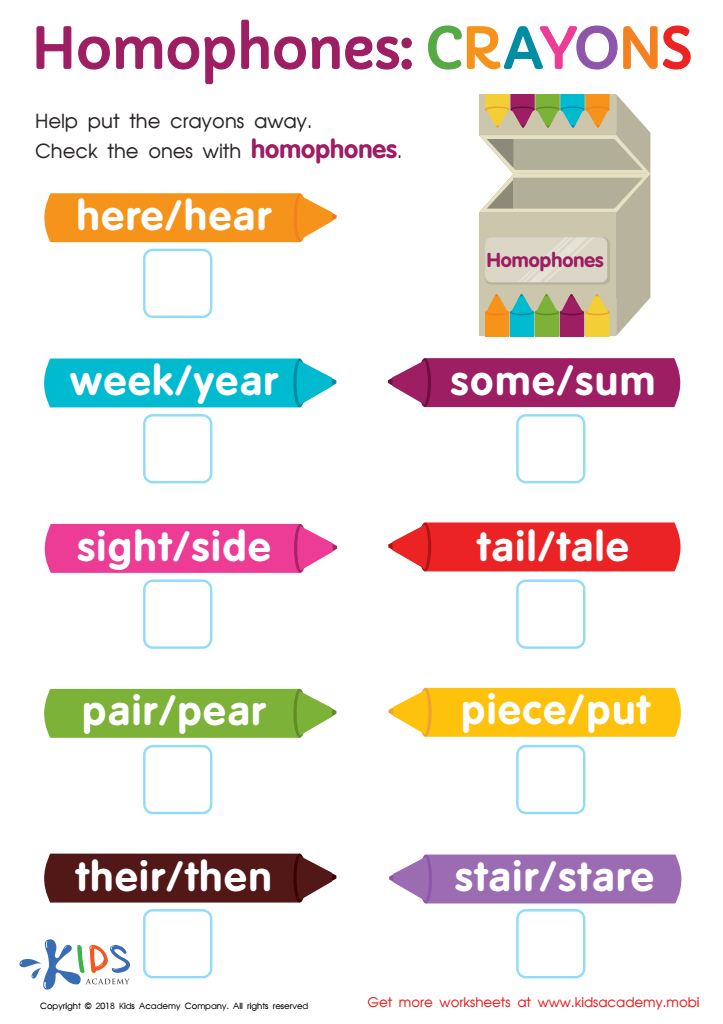

Homophones: Crayons Worksheet
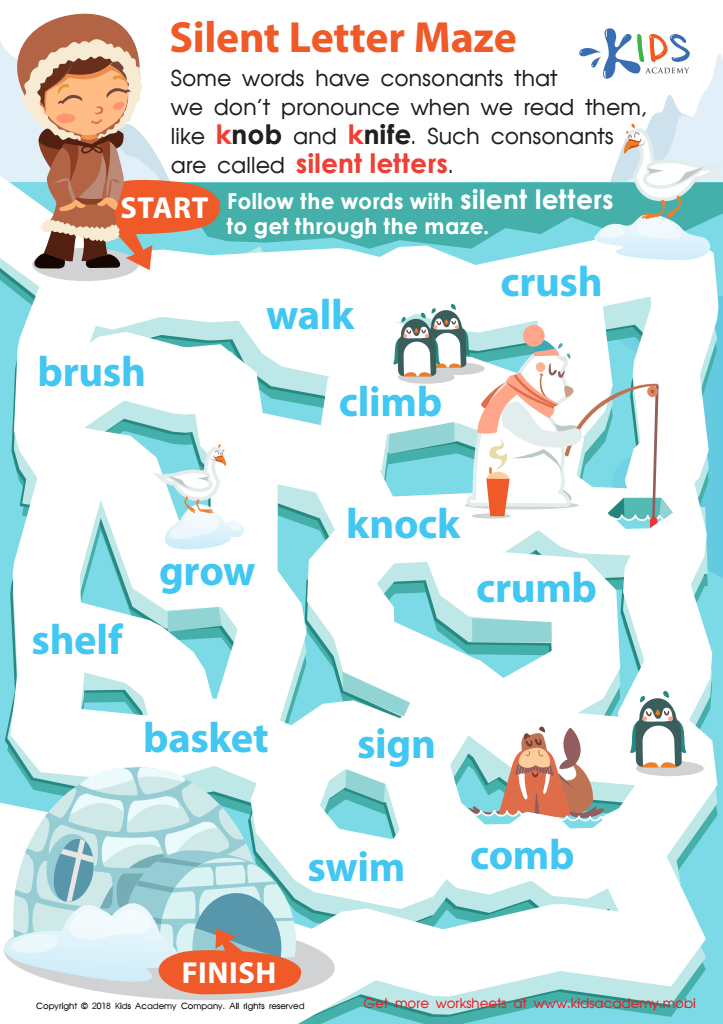

Silent Letter Maze Worksheet
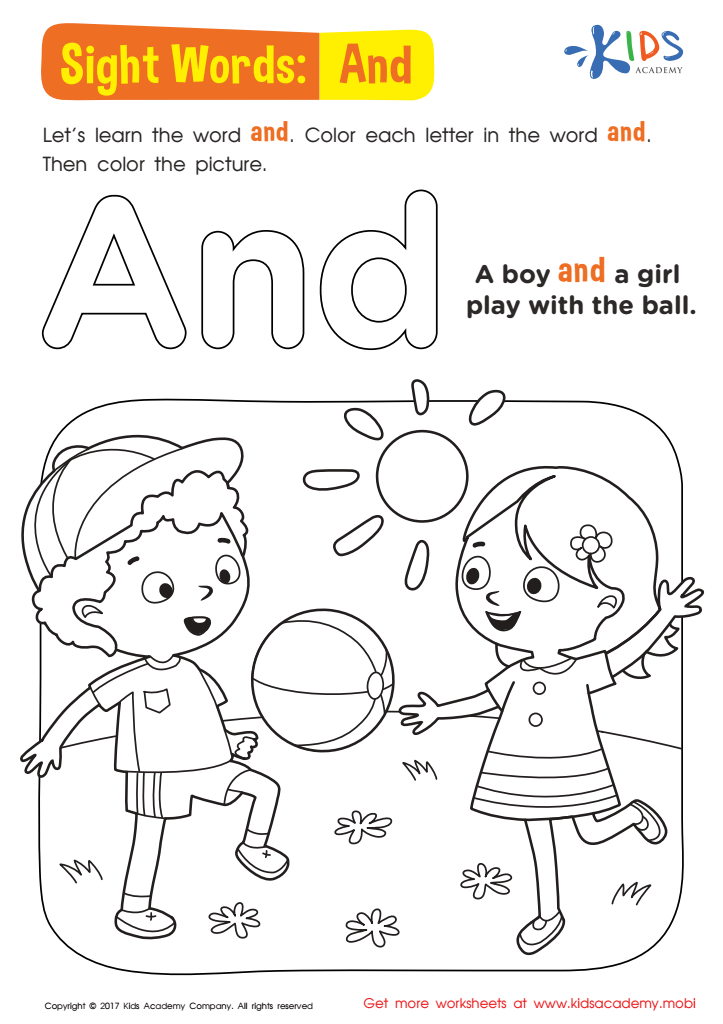

And Worksheet Sight Words Worksheet
Spelling practice and phonics are essential components of early literacy development, especially in Grade 3. At this stage, children are transitioning from learning to read to reading to learn. A solid understanding of phonics enables them to decode words, making reading more accessible and enjoyable. Pronunciating the phonetic sounds helps students recognize word patterns, leading to improved spelling skills, vocabulary expansion, and better comprehension.
For parents and teachers, focusing on phonics practice can significantly improve a child’s academic performance and self-confidence. When children master spelling and phonics, they become more proficient readers and writers, enhancing their communication skills. This foundational knowledge not only supports their current learning but also sets them up for future academic success, as literacy skills build progressively.
Additionally, spelling practice encourages attention to detail and improves critical thinking as students analyze sounds, letters, and spellings. This focus nurtures a culture of learning and curiosity, motivating children to explore language further. Involving parents in this process through fun activities and consistent reinforcement at home can create a strong support system for children's literacy development, fostering a lifelong love for reading and learning. Ultimately, prioritizing Grade 3 phonics and spelling practice ensures a robust educational foundation for children’s future.
 Assign to My Students
Assign to My Students




